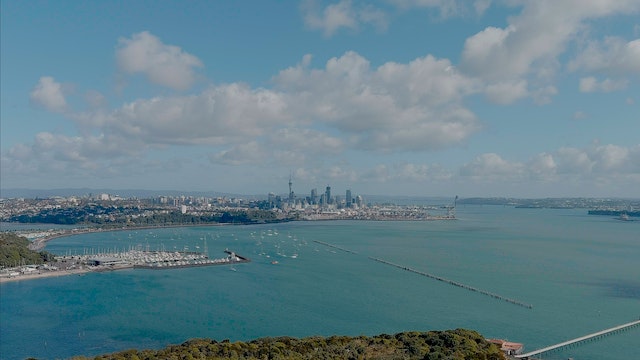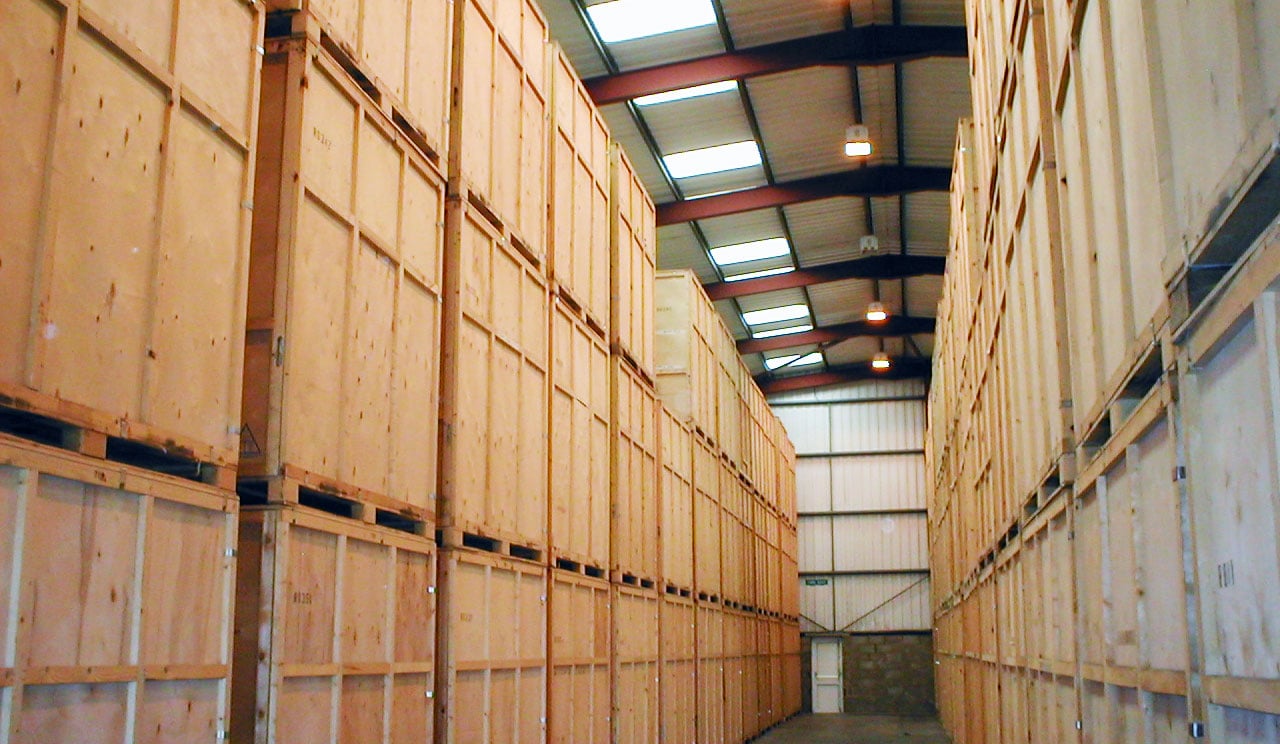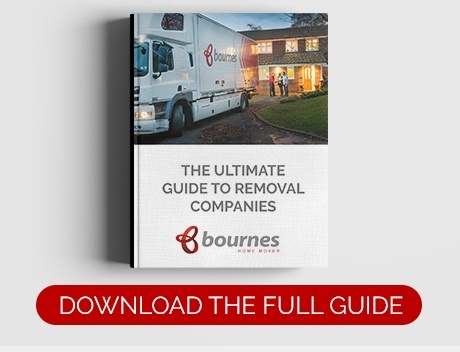Thinking of moving to New Zealand and need to ship your household items? Wondering about the cost and how to ensure a smooth and safe move? Look no further - we've got you covered. In this post, we promise to provide you with all the information you need to make an informed decision about moving your belongings to New Zealand. By understanding the costs involved and taking steps to avoid any unexpected surprises, you can get the most value out of your budget and ensure your items arrive safely at your new home.
In this article:
- Average costs of Removals to New Zealand
- How removal costs are calculated and the factors influencing your price
- Why some quotes for removals to New Zealand are so cheap
- Why some companies are more expensive
- Extra costs to be prepared for (with examples)
- How to save money on shipping to New Zealand
- How to protect your payment
So, let's get started.
What is the average cost of removals from UK to New Zealand?
Quick Answer: For smaller loads, shared container services start from as little as £1,000 for a door-to-door service. For full house moves, a 20ft container starts at around £6,000* (ideal for a typical 3 bed house) or 40ft containers suitable for larger homes or moves including a car can cost from £9,800.
Keep in mind that prices may vary depending on your specific needs and requirements, and the company that you move with, so read on to find out more about how costs are calculated.
Here are some ballpark estimates of door-to-door removal costs for a basic move from the UK to New Zealand - based on a typical simple move scenario using Auckland as an example.
| Type of Container | Typical House Size | Average Door-to-Door Removal Cost (GBP) |
|
20ft Exclusive Container |
3 Bed |
from £6,000 |
|
40ft Exclusive Container |
4+ Bed (or 3 Bed + car) |
from £9,800 |
|
1/2 Shared Container |
1-2 Bed |
from £3,250 |
|
1/4 Shared Container |
1 Bed (essentials) |
from £1,650 |
* Important note: These prices are for full door-to-door international removals. Some websites show port-to-port freight costs only, which will be significantly lower and are typically not suitable for individual household goods moving as you need to have items packed, loaded and the container moved to the port etc.
If you'd like to work out your personal guide price for removals to New Zealand and are based in the South East of England, we're happy to provide you a free, no obligation removals quote.
how much do house removals from the UK to New Zealand cost?
 Photo by Christopher Solly
Photo by Christopher Solly
The cost of shipping from UK to New Zealand will vary for each move, and each removal company is different.
The total cost of your door-to-door removal to New Zealand is not just based on the size of the container you use. It is influenced by a variety of factors specific to your needs, so don't rely on a generalised estimate when budgeting. The ONLY way to get an accurate cost for YOUR move is to get a personal quote.
How are removal costs for shipping from UK to New Zealand calculated?
There are 3 elements to any international move.
- Origin Costs: Packing and loading your items into a container and getting it to the port.
- Transport Costs (aka freight): Shipping the container to your destination country.
- Destination Services: Customs clearance, bringing the container to your new home and unloading your furniture and boxes.
There are many factors that go into each of these 3 stages that will affect the cost of removals to New Zealand, from the volume of effects you're moving to the access at both homes, distance travelled, your schedule and any special requirements.
Let's break those down....
1. What household items are you moving with you to New Zealand
There are two main considerations here that will influence costs:
- Volume: The number of items you are moving and their size is a big chunk of the cost because that determines how long it takes to pack, load and unload as well as the packing materials and the size of container needed etc. It can also determine the mode of transport you use too e.g., full container or shared container shipping.
- Type of items: Most household goods are simple to ship, but there are some items that can add to the cost of your move for example:
- Fragile items that need crating or specialist packing.
- Heavy/Awkward items that need special handling.
- Large items that need to be dismantled and reassembled to get out of / into your property.
- Restricted items that need special processes or additional paperwork for customs clearance.
2. How quickly do you want your belongings to arrive in New Zealand?
The volume of items isn't the only thing that influences the method of shipment (e.g., full container or shared container). The speed you want your items to arrive is also a big factor in choosing shipping method, and therefore price.
Typically, quicker shipping = more expensive.
The quickest shipping method is air freight, but this is only really recommended for small shipments of important items, like work equipment, baby things and some clothes. Everything else typically travels by sea freight. The quickest method of sea shipping for household goods is an exclusive container, followed by an LCL shared shipment and finally groupage shipments. Find out more about sea shipping options here.
As an example, here are some typical transit times for Auckland, New Zealand.
- Exclusive Container - 11-14 Weeks (20' container from £6,000)
- Shared Container - LCL - 11-14 Weeks (1/6 container from £3,400)
- Shared Container - Groupage - 12-20 Weeks (1/6 container from £1,800)
3. Your properties
 Photo by Kate Antamanova on Unsplash
Photo by Kate Antamanova on Unsplash
A number of things about your home in the UK and your home in New Zealand can influence the cost of shipping your household goods.
- Distance of UK home to origin port and from destination port in New Zealand to your new property. This affects the cost of transport.
- Access: Many homes in the UK and New Zealand have good access for large removals vehicles, but the cost can increase if there are any restrictions or challenges, for example, a long distance or steep steps from the front door to nearby parking that will take the crew more time; narrow lanes or low bridges that might mean several smaller vehicles are needed instead of one big one; lots of internal or external stairs; tight doors/hallways that might mean items need special handling or dismantling to move.
4. What is your move schedule?
When you plan your move, the dates you select can impact your shipping costs. For example, moving during school holidays is a popular choice for families with children as they can start the new term with minimal disruption. However, school holidays are the busiest time for removal companies, so tend to come with higher pricing. If you can opt for an off-peak moving date you may get a cheaper rate.
If you have a smaller shipment, being flexible with collection or delivery dates may mean a discounted price if the international mover can combine your move with others.
5. What International Moving services do you need?
Most international removals quotes will include the main services for a door-to-door move: packing, loading, transport, customs clearance and delivery (always worth checking though!), but often offer extra services that make your move less stressful, for example:
- International Removals Insurance (usually cost is a % of the value of goods).
- Handyman services to take down pictures, put up shelves etc.
- Cancellation/postponement protection fee so that your investment is protected if you have to cancel or postpone your move at the last minute.
Why are some quotes for removals to New Zealand so cheap?
Different international removal companies prices will always be different, but sometimes you'll find some companies are significantly cheaper than others. It's a good idea to evaluate why, as the reason may have an impact on your move.
Here are some reasons one company may be cheaper:
1. They may have assessed a lower volume of belongings
Pre-move surveys are done by humans looking at your household goods and personal effects and estimating their volume (height x width x depth). For many items, this is done by eye rather than with a tape measure (as that would take forever!) and so getting an accurate volume is a skill that professional surveyors take many years to master. If one has assessed volume lower than another they may have misjudged something or missed an item.
Getting the volume significantly wrong on an international move can have a big impact. From the extra costs you'll likely incur for freight or delivery, to the risk of having to leave items behind if not everything fits in your container on move day. These situations can be stressful, so it's always a good idea to either ask your movers for the volume or an inventory list to make sure it's accurate.
2. They may have used a different freight option
Freight cost is the part of your price that relates to the physical journey by ship. Freight costs vary depending on the shipping line and sailing slot selected. and this can change move prices by £100's.
If one company is offering a significantly cheaper price, you can ask both companies which freight option they used, ensuring it is a) a quality shipping line they have good experience with b) a suitable transit time and c) an up-to-date rate (as these can fluctuate frequently).
3. Are they a reputable UK-to-New Zealand removal company?
Relocating someone within the UK is not the same as moving them abroad. When you move someone internationally, you need to follow different rules and do things like pack differently and fill out specific paperwork. Your mover will also need to have established relationships with partners in other countries.
So, it's important to choose a moving company that has the right qualifications and certification to make sure they can handle an international move properly.
 FIDI FAIM is the only quality standard for International Removals. Certified companies are regularly inspected in over 200 areas to make sure they meet the requirements for a good international move like qualified staff, roadworthy vehicles, fair contracts, quality packing materials etc. If one removal company is offering you a much cheaper price, always check if they are FIDI FAIM certified - after all, you wouldn't have a gas boiler installed by someone who wasn't Gas-Safe certified - so don't take the risk with all your worldly possessions either! Find out more about why you should move with a FIDI FAIM certified company.
FIDI FAIM is the only quality standard for International Removals. Certified companies are regularly inspected in over 200 areas to make sure they meet the requirements for a good international move like qualified staff, roadworthy vehicles, fair contracts, quality packing materials etc. If one removal company is offering you a much cheaper price, always check if they are FIDI FAIM certified - after all, you wouldn't have a gas boiler installed by someone who wasn't Gas-Safe certified - so don't take the risk with all your worldly possessions either! Find out more about why you should move with a FIDI FAIM certified company.
4. They may have given you a discount
Sometimes you get lucky and international removal companies discount your price. This could be because they have a groupage container waiting to sail that your belongings would fill, or because they already have a vehicle in your area that could do the collection without extra costs, or because they have a quiet day or week that they'd like to book out.
 Image by Squirrel_photos from Pixabay
Image by Squirrel_photos from Pixabay
Why are some international shipping companies more expensive?
As well as considering all of the above, pricing between companies that have provided like-for-like quotes and meet the same quality standards can still vary. This could be for a number of reasons, including:
- Reputation (check out Trustpilot for reviews)
- Availability
- Extra value services (like a dedicated move manager or VIP services)
It's OK to ask movers what value they add for the additional cost. They should be ready and willing to tell you why they are the best fit for you!
What additional costs should I be aware of when shipping belongings to New Zealand?
When you compare quotes between international removal companies it is important to check which costs are included or excluded. Typically the main services like packing, freight, customs clearance and unpacking are included, but some of the below might be excluded.
If you don't see these charges noted separately on your quote, make sure to ask if these are covered in your price.
-
MAF Biosecurity Charges
The Ministry of Agriculture and Fisheries (MAF) may select your container for inspection at the border to identify any items of risk to New Zealand Biosecurity. Any items deemed to be a risk may require treatment before release or may be refused entry and re-shipped or destroyed. You will be liable for the costs of these actions.
There is a fee for the inspection which is usually paid locally at approximately NZD$47-520 for a 20ft container, or NZD$550-620 for a 40ft container. Shared shipments are charged a proportion of this fee based on the volume shipped.
There are lots of steps you can take to reduce the risk of inspection charges including cleaning items properly before shipping and making sure you don't include any restricted or prohibited items in your shipment. You can read more about risk items on the MPI website.
-
Lithium Ion Batteries
Due to the increased risk of fire the British Association of Removers strongly advises against including Lithium Ion (Li-ION) batteries in your shipment.
Should you wish to include these in your shipment your mover will need to apply for a Dangerous Goods Note from the shipping line to have the container classified as hazardous and handled appropriately. Misdeclaring the container can lead to personal fines for the owner up to $30,000 (USD). The cost of applying for this can be in the region of £150, so it may be cheaper to leave out of your shipment and buy them new when you arrive in New Zealand.
-
Customs Duties and Taxes for household goods imports into New Zealand
Most used household goods are not subject to duties and GST (Services Tax) when you move them to New Zealand, provided you are eligible for exemption. Eligible people usually include returning citizens, or non-citizens holding a residence visa or permit, and who have been abroad longer than 21 months.
There are however some personal belongings that may not be free of duties and GST so always check with your mover if there are any items included in your shipment that may not be imported duty-free. These items may include:
-
- Items that aren't for personal use, e.g., for business purposes
- New items
- Some antiques
- Alcohol (although typically it is not advised to ship liquids at all)
-
Storage in New Zealand
If you're not ready for delivery when your shipment arrives you may need to pay for temporary storage. If you think this might be the case ask your removal company upfront what likely storage charges in New Zealand would be so you can budget.

What can I do to save money on shipping household belongings from the UK to New Zealand?
Now you understand everything that goes into the price of your removal to New Zealand here are a few ways you can save costs.
Cost-saving tips for removals to New Zealand
- Declutter: Reduce your move volume by only taking the things you really want and need. Get rid of anything that won't work in New Zealand, fit the size or style of your new home or that you really won't use. Make sure to donate or recycle wherever possible!
- Be flexible: If you can accept a slightly slower delivery time or move on a quieter day or a day that works well for your mover, they might be able to give you a discounted rate. Always worth asking!
- Plan ahead: Work with your move manager to get all your documents in order ASAP - this might mean your shipment can be loaded directly at your home instead of via a warehouse to reduce the cost.
- Think about the Biosecurity inspection: Reduce the risks of high inspection costs and potential treatment fees by considering not taking any items of quarantine concern, or if you do have to take them make sure they are properly cleaned before packing.
- Get insurance: The cost of insurance will seem low when compared with having to replace expensive items if they are lost or damaged, or worse if there is a maritime disaster with your shipping vessel that could leave you liable for part of the costs of recovery under 'general average'.
- Use reputable movers: Do your due diligence to ensure you're moving with a qualified and reputable company, and avoiding rogues. This will reduce the hidden costs if things go wrong! Always choose a FIDI FAIM certified company for removals overseas.
How do I get a removals quote for my move to New Zealand?
The only way to get an accurate idea of the cost of shipping from the UK to New Zealand for your individual move is to get a personal removals quote.
Step 1 - Find the companies you want to shortlist. Check out our Ultimate guide to International Removal Companies for advice on how to find and narrow down the best companies for you. If you're moving from the South East of England we'd love to help - request your quote here.
Step 2 - Arrange a home visit with your shortlist. Ideally, get 3 quotes (you'll need a home visit from each company) so you can compare properly.
Step 3 - Wait for your quote! You'll usually get this within 24-48 hours of your home visit.
Bonus tip: Protect your payments.
Quick side note... there is one risk related to the costs of international moving that not many people talk about. What if the moving company you choose goes out of business whilst your shipment is en route to New Zealand?
It's standard practice to pay for your move up front at least 7 days before collection. Your moving company will then hire a local partner in New Zealand to complete the customs clearance and delivery, but they won't usually be billed for these services until after delivery.
It can take months for your belongings to arrive in New Zealand, and as we've sadly seen in the past (although very rare) anything can happen during that time. If your moving company goes out of business after collection, the local partner at destination may not get paid by them for the delivery service, and so may not be willing to fulfil that contract without extra charges to you.
Whilst moving with a reputable company, and one that is FIDI FAIM certified (they assess financial risk) significantly reduces this risk, there are two further things we'd recommend to protect yourself.
- Move with a BAR Overseas Member who provides an Advance Payment Guarantee . If a mover suffers financial failure the Scheme will cover the reasonable cost of completing the removal contract.
- Pay by Credit Card so you are protected by your bank.
Want to know more about International Removals?
Check out The Ultimate Guide to International Removal Companies to find out everything you need to know to find a great mover and have a smooth move.

.png)









